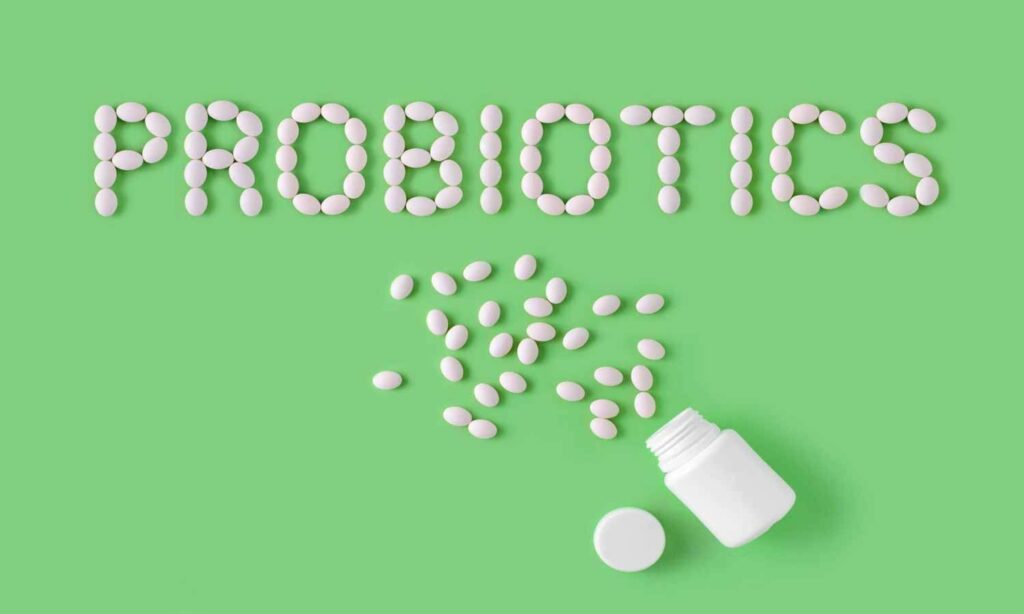Understanding the Gut-Brain Connection
The gut-brain axis is a complex communication network linking the gut microbiota, the central nervous system (CNS), and the enteric nervous system (ENS). This bidirectional communication system allows signals to travel between the gut and the brain, influencing various physiological processes, including mood, cognition, and behavior. The gut microbiota, comprised of trillions of bacteria, fungi, and other microorganisms, plays a key role in this communication network, producing neurotransmitters, metabolites, and other signaling molecules that can affect brain function and mental health.
Potential Benefits of Probiotics for Brain Health
Mood Regulation
Probiotics have been shown to modulate the production of neurotransmitters such as serotonin and dopamine, which play crucial roles in regulating mood and emotions. By promoting a healthy balance of gut microbiota, probiotics may help support emotional well-being and reduce symptoms of depression and anxiety.
Cognitive Function
Emerging research suggests that gut microbiota composition may influence cognitive function and brain health. Probiotics have been shown to enhance cognitive performance, improve memory, and protect against age-related cognitive decline in some studies.
Stress Reduction
Probiotics may help mitigate the body’s response to stress by modulating the hypothalamic-pituitary-adrenal (HPA) axis, the body’s central stress response system. By reducing levels of stress hormones such as cortisol, probiotics may help promote relaxation and resilience to stress.
Incorporating Probiotics into Your Diet
Fermented Foods
Include probiotic-rich foods such as yogurt, kefir, sauerkraut, kimchi, and kombucha in your diet. These fermented foods contain beneficial bacteria that can help support gut health and promote a diverse microbiota.
Probiotic Supplements
Consider taking a high-quality probiotic supplement containing strains such as Lactobacillus and Bifidobacterium, which have been extensively studied for their potential health benefits, including brain health.
Prebiotic Foods
In addition to probiotics, consume prebiotic foods such as onions, garlic, bananas, and asparagus, which provide nutrients that support the growth and activity of beneficial gut bacteria.
FAQs About Probiotics and Brain Health
Can probiotics improve symptoms of depression and anxiety?
Some studies suggest that probiotics may help reduce symptoms of depression and anxiety by modulating neurotransmitter levels and promoting a healthy gut microbiota. However, more research is needed to fully understand the role of probiotics in mental health.
Are there specific probiotic strains that are beneficial for brain health?
Certain probiotic strains, such as Lactobacillus rhamnosus and Bifidobacterium longum, have been studied for their potential effects on mood, cognition, and stress response. However, individual responses to probiotics may vary, and more research is needed to identify the most effective strains for brain health.
Can probiotics help with cognitive decline in older adults?
Some research suggests that probiotics may have neuroprotective effects and could help mitigate age-related cognitive decline. However, more long-term studies are needed to evaluate the efficacy of probiotics for preserving cognitive function in older adults.
Are there any side effects of taking probiotics?
In general, probiotics are safe for most people when taken as directed. However, some individuals may experience mild digestive symptoms such as bloating, gas, or diarrhea when first starting probiotic supplementation. These symptoms usually resolve on their own and are temporary.
How long does it take to notice the effects of probiotics on brain health?
The effects of probiotics on brain health may vary depending on factors such as probiotic strain, dosage, and individual response. Some people may notice improvements in mood or cognition within a few weeks of starting probiotic supplementation, while others may require longer-term supplementation to experience benefits.
Can probiotics be beneficial for children’s brain development?
Emerging research suggests that the gut microbiota may influence brain development and cognitive function in early childhood. Probiotics may play a role in supporting healthy gut microbiota colonization and promoting optimal brain development in infants and young children. However, more research is needed in this area.
Can probiotics interact with medications or medical conditions?
Probiotics are generally safe for most people, but individuals with compromised immune systems or underlying medical conditions should consult with a healthcare professional before starting probiotic supplementation, especially if they are taking medications or undergoing medical treatment.
Conclusion
Probiotics offer promising potential benefits for brain health by modulating the gut microbiota, influencing neurotransmitter production, and supporting stress resilience. While more research is needed to fully understand the mechanisms and efficacy of probiotics for brain health, emerging evidence suggests that incorporating probiotic-rich foods or supplements into your diet may have positive effects on mood, cognition, and overall mental well-being. By prioritizing gut health through a balanced diet, regular exercise, and stress management techniques, you can support a healthy gut-brain axis and optimize your brain health for long-term vitality and resilience. Remember to consult with a healthcare professional before starting any new dietary supplements, especially if you have underlying medical conditions or concerns about potential interactions.
- Retinol Peel Near Caterham, Surrey - June 1, 2025
- Obagi Nu-Derm System For Anti-aging In Kingston Upon Thames Surrey London - June 1, 2025
- The Emotional Aftermath Of Ghosting And How To Find Closure - May 31, 2025

